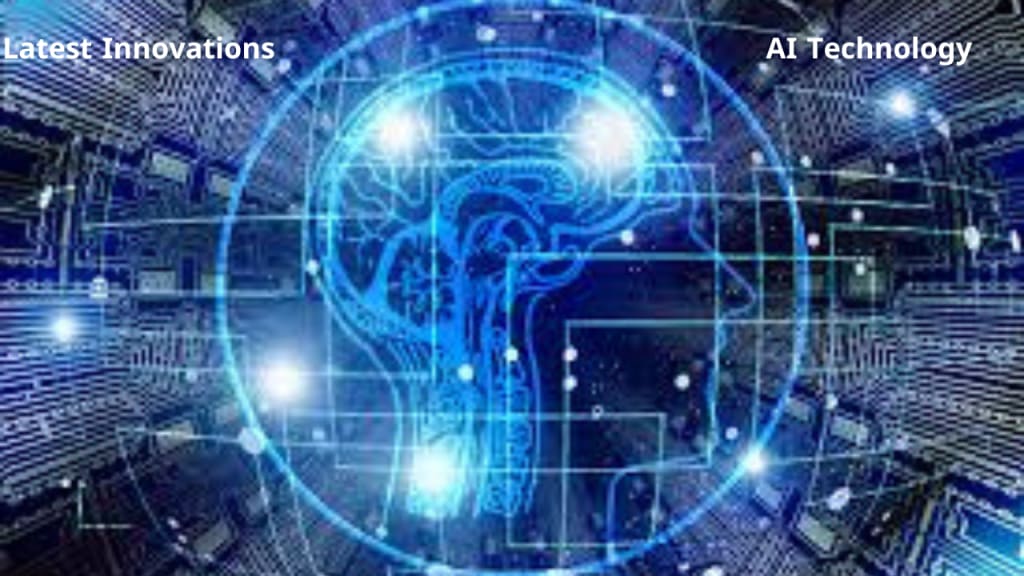The Future of Artificial Intelligence: Exploring the Latest Innovations
Unveiling the Next Era of AI Technology

Artificial intelligence (AI) continues to revolutionize various industries, transforming the way we live and work. The rapid advancements in AI technology have paved the way for last-generation innovations that are more powerful, efficient, and intelligent. In this article, we delve into the latest trends in AI, exploring key developments, applications, and the future potential of this groundbreaking technology.
1. The Evolution of Artificial Intelligence
AI has come a long way since its inception. Early AI systems were rule-based and limited in functionality. However, the advent of machine learning and deep learning has significantly enhanced AI's capabilities. The latest AI models leverage vast amounts of data and advanced algorithms to perform complex tasks with remarkable accuracy.
1.1 Machine Learning and Deep Learning
Machine learning, a subset of AI, involves training algorithms to learn from data and make predictions or decisions. Deep learning, a more advanced form of machine learning, utilizes neural networks with multiple layers to analyze and interpret data. These technologies have enabled AI systems to achieve human-like performance in various domains, including image and speech recognition, natural language processing, and autonomous systems.
1.2 Natural Language Processing (NLP)
Natural language processing is a key area of AI that focuses on enabling machines to understand, interpret, and respond to human language. Recent advancements in NLP have led to the development of sophisticated language models like GPT-4, capable of generating coherent and contextually relevant text. These models have found applications in chatbots, virtual assistants, and automated content creation.
2. Key Innovations in Last-Generation AI
The latest generation of AI is marked by several groundbreaking innovations that are reshaping the technological landscape.
2.1 Reinforcement Learning
Reinforcement learning is a type of machine learning where an agent learns to make decisions by interacting with its environment and receiving feedback in the form of rewards or penalties. This approach has been instrumental in developing advanced AI systems for gaming, robotics, and autonomous vehicles. Notable examples include AlphaGo, which defeated human champions in the game of Go, and self-driving cars that navigate complex environments with minimal human intervention.
2.2 Generative Adversarial Networks (GANs)
Generative Adversarial Networks are a class of AI models that consist of two neural networks: a generator and a discriminator. The generator creates synthetic data, while the discriminator evaluates its authenticity. This adversarial process leads to the creation of highly realistic images, videos, and audio. GANs have numerous applications, from creating art and music to generating synthetic training data for AI models.
2.3 Transfer Learning
Transfer learning involves leveraging knowledge gained from one task to improve performance on a related task. This technique has proven particularly useful in scenarios where labeled data is scarce. By pre-training models on large datasets and fine-tuning them on specific tasks, AI systems can achieve high accuracy with limited data. Transfer learning has been successfully applied in areas such as medical diagnosis, where annotated data is often limited.
3. Applications of Last-Generation AI
The latest advancements in AI have led to a wide range of applications across various industries.
3.1 Healthcare
AI is transforming healthcare by enhancing diagnostics, treatment planning, and patient care. AI-powered systems can analyze medical images, detect anomalies, and assist doctors in diagnosing diseases with high accuracy. Personalized medicine, where treatments are tailored to individual patients based on their genetic makeup, is also being facilitated by AI. Additionally, AI-driven chatbots and virtual health assistants are improving patient engagement and support.
3.2 Finance
In the finance sector, AI is being used to optimize trading strategies, detect fraudulent activities, and provide personalized financial advice. Machine learning algorithms analyze vast amounts of financial data to identify patterns and trends, enabling more informed decision-making. AI-powered robo-advisors offer customized investment recommendations based on individual risk profiles and financial goals.
3.3 Transportation
AI is revolutionizing transportation through the development of autonomous vehicles and intelligent transportation systems. Self-driving cars, equipped with advanced sensors and AI algorithms, can navigate and make real-time decisions, reducing the risk of accidents and improving traffic flow. AI is also being used in traffic management systems to optimize routes, reduce congestion, and enhance overall transportation efficiency.
3.4 Manufacturing
In manufacturing, AI is driving the adoption of smart factories, where interconnected systems and AI-powered robots streamline production processes. Predictive maintenance, powered by AI algorithms, helps identify potential equipment failures before they occur, minimizing downtime and reducing costs. AI is also enhancing quality control by analyzing production data and detecting defects in real-time.
4. The Future Potential of Artificial Intelligence
The future of AI holds immense potential, with ongoing research and development paving the way for even more advanced capabilities.
4.1 Explainable AI
One of the key challenges in AI is the lack of transparency in decision-making processes. Explainable AI aims to address this issue by making AI systems more interpretable and understandable to humans. By providing clear explanations for their decisions, AI systems can build trust and facilitate their adoption in critical areas such as healthcare and finance.
4.2 AI Ethics and Governance
As AI becomes more pervasive, ethical considerations and governance frameworks are becoming increasingly important. Ensuring that AI systems are fair, transparent, and accountable is crucial to prevent biases and unintended consequences. Efforts are underway to establish ethical guidelines and regulatory frameworks that promote responsible AI development and deployment.
4.3 Human-AI Collaboration
The future of AI lies in seamless collaboration between humans and machines. AI systems can augment human capabilities, enabling more efficient and effective decision-making. In fields such as education, AI can provide personalized learning experiences, while in the workplace, AI-powered tools can enhance productivity and creativity.
Conclusion
The latest generation of artificial intelligence is ushering in a new era of innovation and transformation. From healthcare and finance to transportation and manufacturing, AI is revolutionizing various industries and unlocking new possibilities. As we continue to explore the potential of AI, it is essential to address ethical considerations and ensure that AI technologies are developed and deployed responsibly. The future of AI is bright, and its impact on society is bound to be profound
About the Creator
L . Rachid
I write various enjoyable and purposeful stories, that immerse you in the world of thought and narrative skill. You can follow all the new updates on my channel
Best regards
Enjoyed the story? Support the Creator.
Subscribe for free to receive all their stories in your feed. You could also pledge your support or give them a one-off tip, letting them know you appreciate their work.






Comments
There are no comments for this story
Be the first to respond and start the conversation.